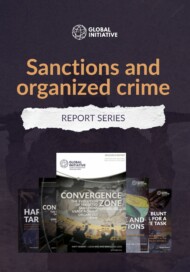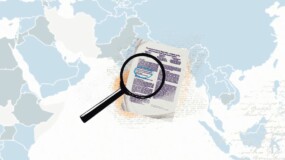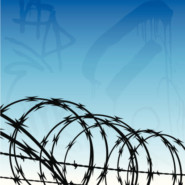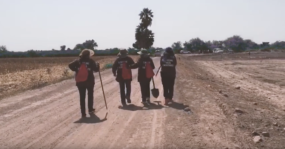Event Details
Registration is not mandatory, you will find direct links to join on this page. Registered users will get regular email notifications and reminders.
Posted on 11 May 2022
The Global Initiative Against Transnational Organized Crime (GI-TOC) is preparing to engage in the upcoming UN Commission on Crime Prevention and Criminal Justice (CCPCJ). In uncertain and unstable times, it is more important than ever to foster dialogue between governments and civil society on how best to prevent and counter organized crime, and we will bring civil society experiences and voices to those discussions.
From 16 to 20 May, civil society organizations and UN member states will gather in Vienna and online for the annual session of the CCPCJ. This year’s event takes place under inauspicious circumstances for multilateralism. The most recent meeting of the CCPCJ’s sister commission, the Commission on Narcotic Drugs, was marred by acrimony and divisions, although some progress was made on a handful of policy issues.
Amid a busy season of meetings for the Vienna-based crime-focused diplomatic community, at the CCPCJ member states will consider four draft resolutions. Given the thematic focus on cybercrime in the plenary agenda and the ongoing negotiations on a new cybercrime treaty at the UN, the UK’s resolution on ‘effective national legal frameworks to protect children from sexual exploitation and abuse’ will be particularly topical and shaped by the context of the treaty negotiation.
Following a recent focus among the Vienna-based policy bodies on environmental crime, a resolution from Angola, Peru and Kenya will attempt to start the process to negotiate another legal instrument: an additional protocol to the UN Convention against Transnational Organized Crime (UNTOC), on illicit wildlife trafficking. As governments make slow progress on implementing the UNTOC review process – which started in 2018 and which continues to face political difficulties related to civil society participation – the negotiations on this resolution will test whether there is sufficient appetite among member states to add another protocol to UNTOC.
Throughout the week, the GI-TOC will be taking part in several side events, including those listed below.
Event: The importance of including external perspectives in the negotiations on a UN cybercrime treaty
Date: Monday 16 May | Time: 12:15–13:05 (CEST/Vienna)
Cybercrime is the thematic focus of this year’s CCPCJ. At this event, we will discuss how the input of external voices is fundamental to ensuring that the negotiations around a new cybercrime legal instrument (under the UN Ad Hoc Committee) are informed by best evidence and data provided by non-governmental actors.
Event: Integrated strategy for effective governance of global crime: UNTOC, UNCAC, Rule of Law and Sustainable Development Goals
Date: Wednesday 18 May | Time: 12:15–13:05 (CEST/Vienna)
The European Public Law Organization and the GI-TOC will convene a diverse panel of non-governmental experts to discuss how the international community can better coordinate the work of the UNTOC, the UN Convention against Corruption and the Sustainable Development Goals. The event will also discuss the role of civil society in building a bridge between the different UN mechanisms.
Event: Communities on the front line against organized crime: Voices from the Resilience Fund
Date: Wednesday 18 May | Time: 13:10–14:00 (CEST/Vienna)
Three years after the Resilience Fund was established in the margins of the 2019 session of the CCPCJ, this event will feature a selection of Fund beneficiaries who are working on the front line against organized crime on behalf of their communities. The event will showcase the impact of organized crime on their communities and the grassroots initiatives undertaken by the beneficiaries to prevent and counter organized crime that have been developed and supported by the Fund.
Event: Environmental crime as organized crime in the Amazon Basin
Date: Thursday 19 May | Time: 13:10–14:00 (CEST/Vienna)
This event, organized by government and civil society partners, will explore the connection between environmental crimes as a form of organized criminal activity. Speakers will discuss the different kinds of environmental crime occurring in the Amazon Basin, the criminal actors who are involved, and preventive strategies and responses from governments, civil society and indigenous communities.
For more information on how to participate as a non-governmental organization in the CCPCJ, please consult the website of the Alliance of NGOs on Crime Prevention and Criminal Justice. The deadline to register for the conference is 11 May.



